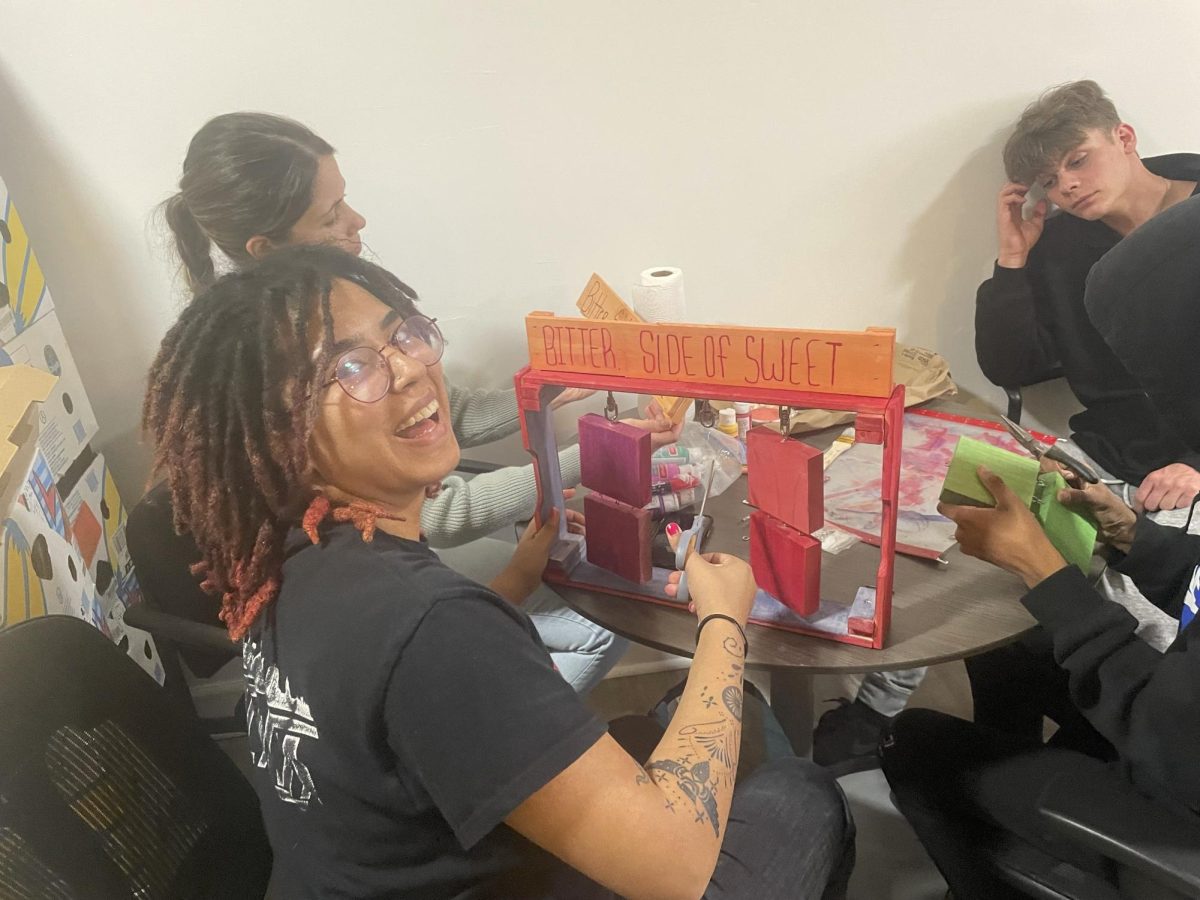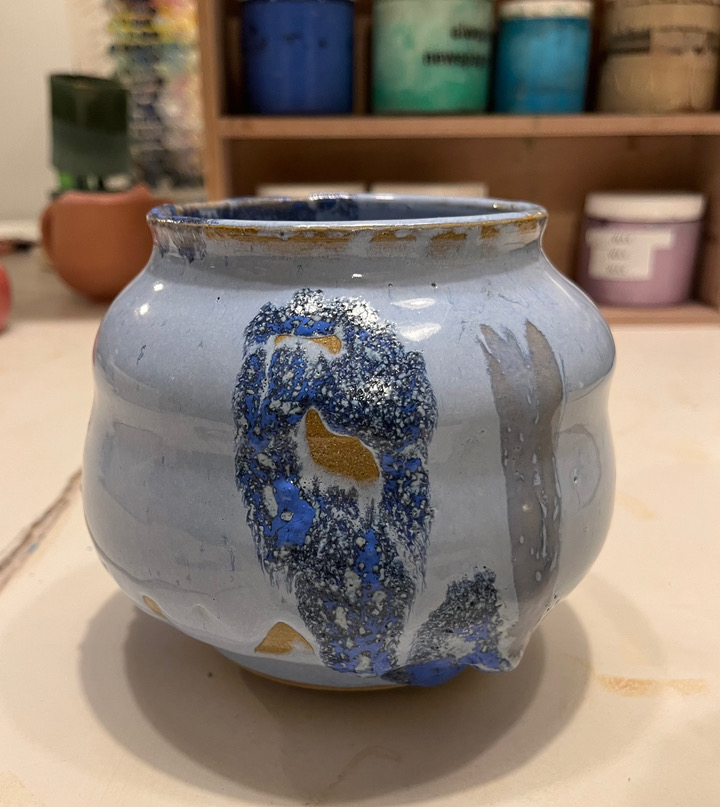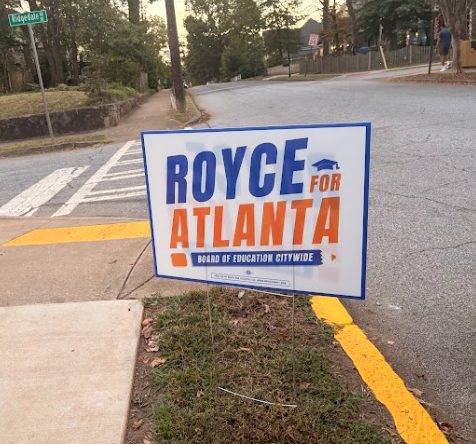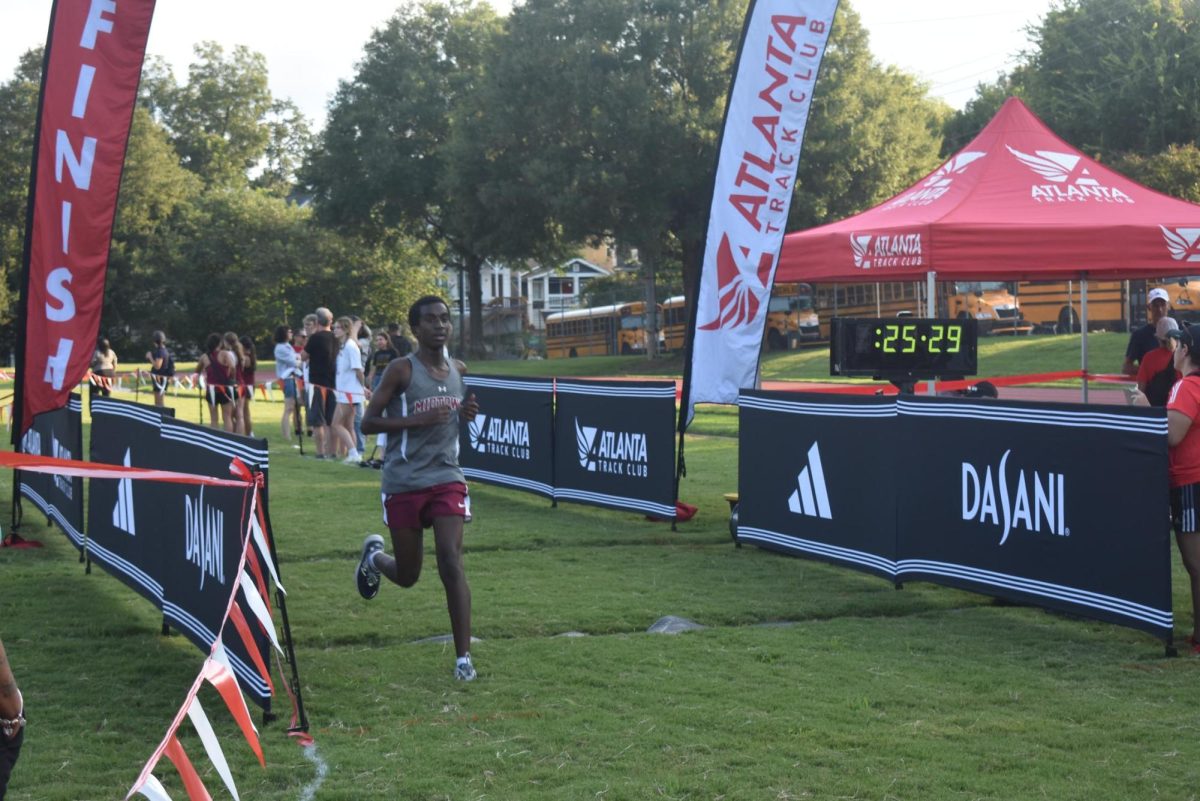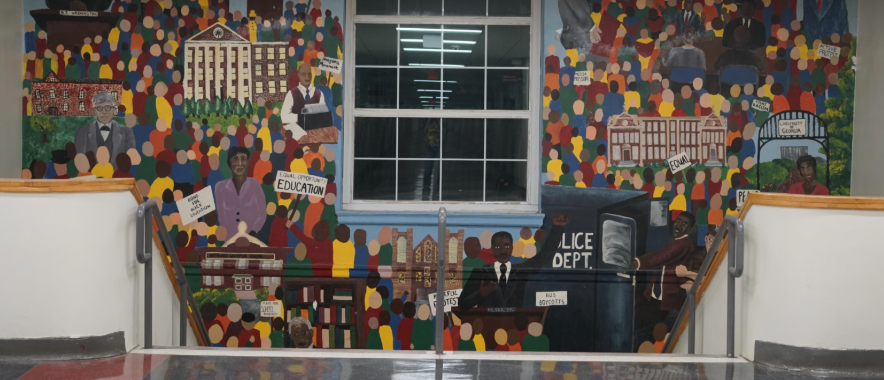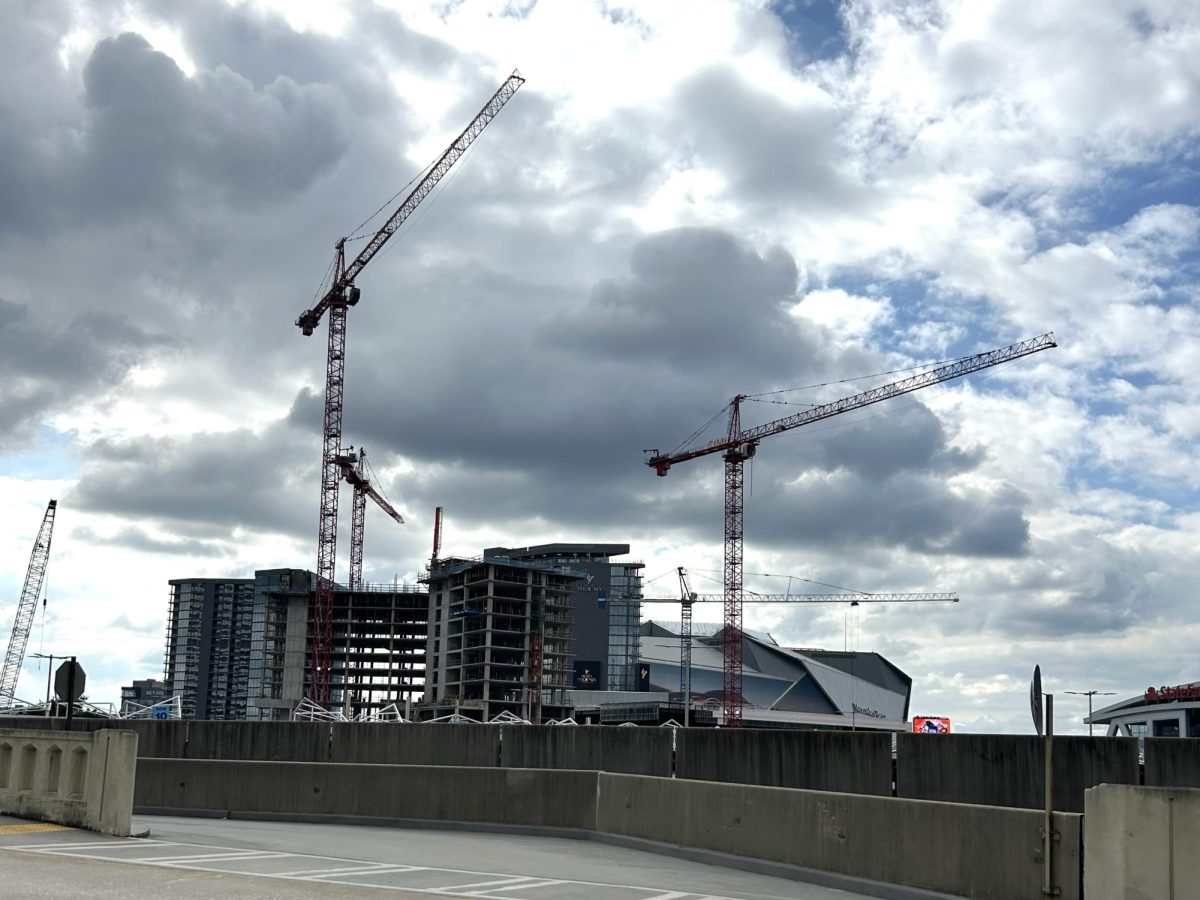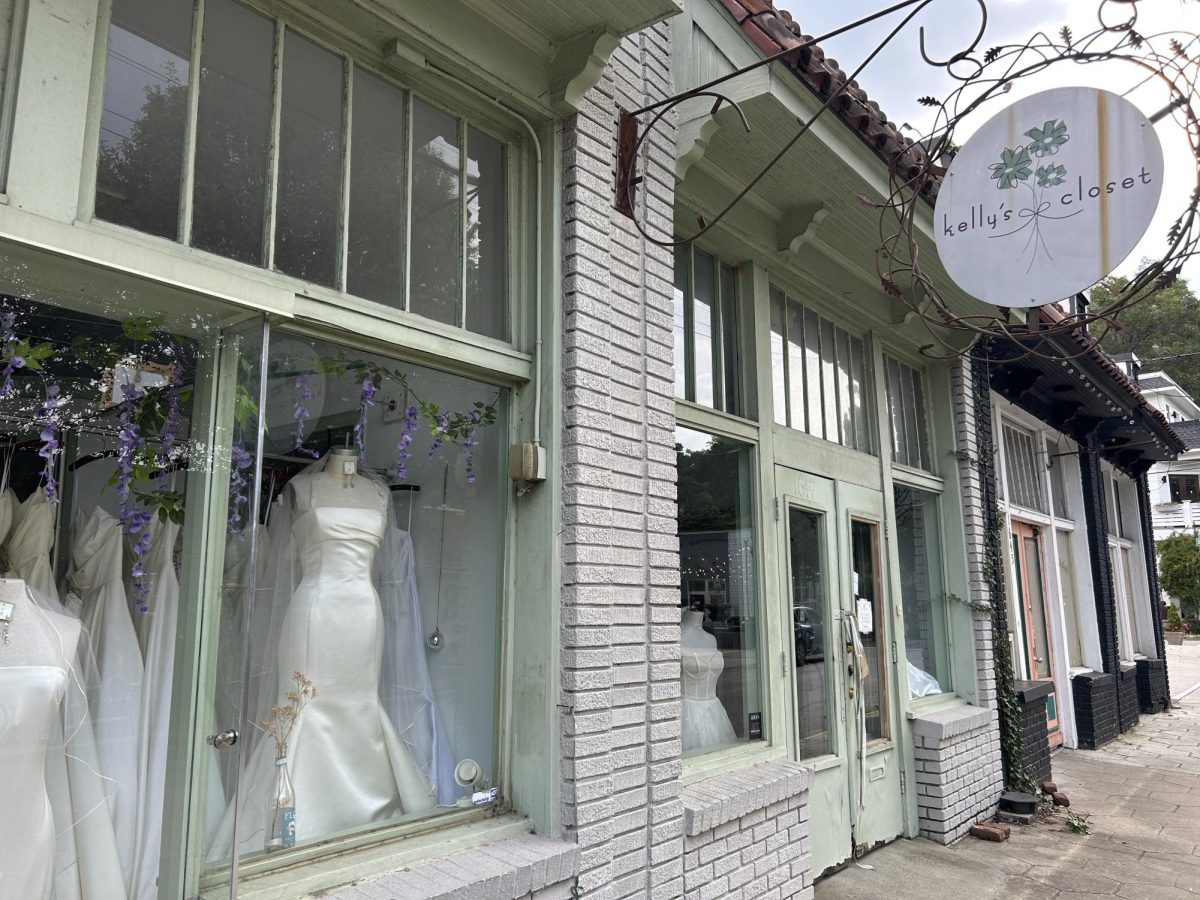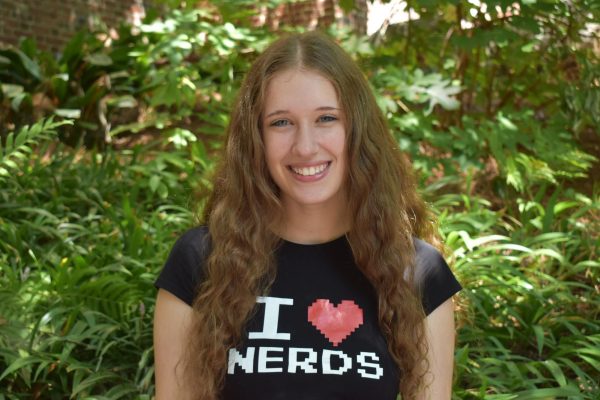After teaching Kennesaw State University students a unit on sustainability in the chocolate industry, geography professor Jason Rhodes established the Chocolate Club, an organization in which high school students are paid $20 per meeting to read and discuss a fictional book about chocolate farming and to learn about and sample sustainably-produced chocolate.
Before creating the Chocolate Club, Rhodes and a fellow KSU professor established Good Food Green City, a program dedicated to increasing access to education about global issues surrounding agriculture. This created an opportunity for local high school students to plant food forests in adjacent communities for profit.
“I got a grant from the city of Atlanta, which allowed us to pay high school students to grow healthy food in southwest Atlanta,” Rhodes said. “Good Food Green City meets six Saturdays in the fall and six Saturdays in the spring. High school students get paid, and we plant vegetable gardens and food forests in people’s backyards.”
While facilitating Good Food Green City, Rhodes took interest in the unit he was teaching about sustainable chocolate production at KSU.
“Two thirds of all the cocoa beans in the world come from West Africa, and there are two countries, Ivory Coast and Ghana, that produce about 60 percent of all the cocoa beans in the world,” Rhodes said. “There have been problems with forced labor and deforestation that go back over 100 years. It’s kind of crazy; around 1900, there was an international scandal when people realized that the chocolate they were eating was coming from slave labor, so there was this international campaign against that. Fast-forward 100 years, and there’s another international scandal when the BBC shows a documentary about forced labor in cocoa. And the problems remain to this day. After the scandal in 2000, companies and governments got together and promised that they were going to get rid of illegal child labor in cocoa, and it simply hasn’t happened.”
After discovering Tara Sullivan’s “The Bitter Side of Sweet,” a fictional novel about two boys who escape work on a cocoa farm in the Ivory Coast, Rhodes hatched a plan to start a club that would raise awareness of the importance of ethical agricultural practices.
“Good Food Green City had some money from the city of Atlanta, so I just thought it would be interesting to read this book with high school kids,” Rhodes said. “The students get paid for participating, so they get $20 every time they show up, and we sample ethical chocolate every time we meet. I figured, ‘A good book, money and chocolate, why not?’”
The Chocolate Club held its first meeting in Oct. 2023 at Beloved Community Church in Atlanta’s Pittsburgh community. With twenty-four chapters to cover, Rhodes said the group initially struggled to maintain structure due to differences between students’ reading patterns.
“We made the adjustment of listening to one chapter of the audiobook each meeting and then doing some activities that conveyed the information of two more chapters,” Rhodes said. “After struggling the first few weeks because nobody was reading, we formed a plan. I would say the important thing is to accommodate the people in the room in terms of what they’re willing and able to do.”
Midtown senior Scottie Devey joined the Chocolate Club after his sister suggested they go to the first meeting together, only to find that she was unable to accompany him. Although he was initially drawn in by the profit and the free chocolate, Devey said he became so invested in ‘The Bitter Side of Sweet’ that he finished the novel relatively quickly.
“If I get interested in a book, I’m just going to devour it, so I think I read that book in like four days,” Devey said. “I went to the first meeting and when I found out the book was about chocolate slavery, I was like, ‘Yeah of course I’m going to read this; I want to know more about this topic,’ and the book was just interesting. I was interested in the book and what it had to say; I got $20; I got to read a good book, and I got to eat chocolate.”
Kennesaw State University sophomore ZiaKenya Saiz, a geography major who took Rhodes’ Introduction to Student Geography and Geography of Clothing classes, was recruited to assist in facilitating the Chocolate Club after expressing an interest in sustainability to Rhodes.
“[Rhodes] had told me about the chocolate industry, and we learned a lot about agriculture in my Sustainable Clothing class, so he told me about the Chocolate Club,” Saiz said. “I thought it would be really interesting to go out and meet with the high schoolers. We were also eating chocolate every week, so that was a plus of course.”
Assisting with the weekly activities, Saiz said she enjoyed getting to know the club members and watching their perspectives change.
“Every week, we would meet up with the high schoolers and read a chapter,” Saiz said. “Then, I’d make a Kahoot that summarized it, and we’d play it and try some chocolate. They were very picky about the chocolate, but in the end, I think they started to put the taste aside and focus more on the qualities of each company, like where they source their beans and the wages they’re paying. Their priorities started changing; it ended up working out that the best tasting chocolate also had the best practices in those aspects.”
After finishing the book mid-Feb., members of the Chocolate Club created projects presenting the information they had learned about chocolate farming to put on display in local Atlanta businesses.
“The students created displays that shared what they learned about chocolate as an environmental and human rights issue, and those displays are now up in four places in Atlanta,” Rhodes said. “There’s a coffee shop called Black Coffee where you can see our display, and there’s also a store on my street as well as a coffee shop called 404 Coffee, which also has our displays.”
In addition to the high school students’ presentations, the local businesses also offer free copies of “The Bitter Side of Sweet” with QR codes that lead to the Good Food Green City Chocolate Justice website.
“The book has a QR code and a sticker that says, ‘Join the chocolate justice conspiracy, take this book and pass it on,’ so the idea is that people will take the book and read it and then leave it for somebody else to take,” Rhodes said. “The QR code leads to our website, where we encourage people to tell us where they found the book; the idea is that these books will travel everywhere.”
Going forward, Rhodes plans to hold the first Chocolate Club meeting of the school year in February 2025 with a maximum of 10 students. High school students who are interested in joining this year’s Chocolate Club should email their name, grade level, and a sentence about why they are interested to [email protected]. With greater knowledge about how to facilitate a club of high school students reading a book, Rhodes said he expects the process to move faster this year.
“The first time around it was just, ‘Let’s read the book and figure out how to organize the weekly meetings,’ and it wasn’t until the end that we made the displays and got them into the coffee shops, but now we’re hoping that in the beginning, students can kind of help us with the campaign and maybe with social media,” Rhodes said.
Rhodes said he is hopeful that the Chocolate Club will continue to raise education on sustainability in agriculture – especially in the chocolate industry – on a global scale.
“I think it could go anywhere,” Rhodes said. “For one thing, by having our books in little free libraries and coffee shops and stuff, I’m hoping that the books do travel and that somebody can read it, visit our website and understand the campaign, maybe even passing the book along. That way, the books could leave Atlanta, and maybe make a bigger impact, but I think we’re going to see where this next iteration takes us and maybe the students participating will have ideas.”

